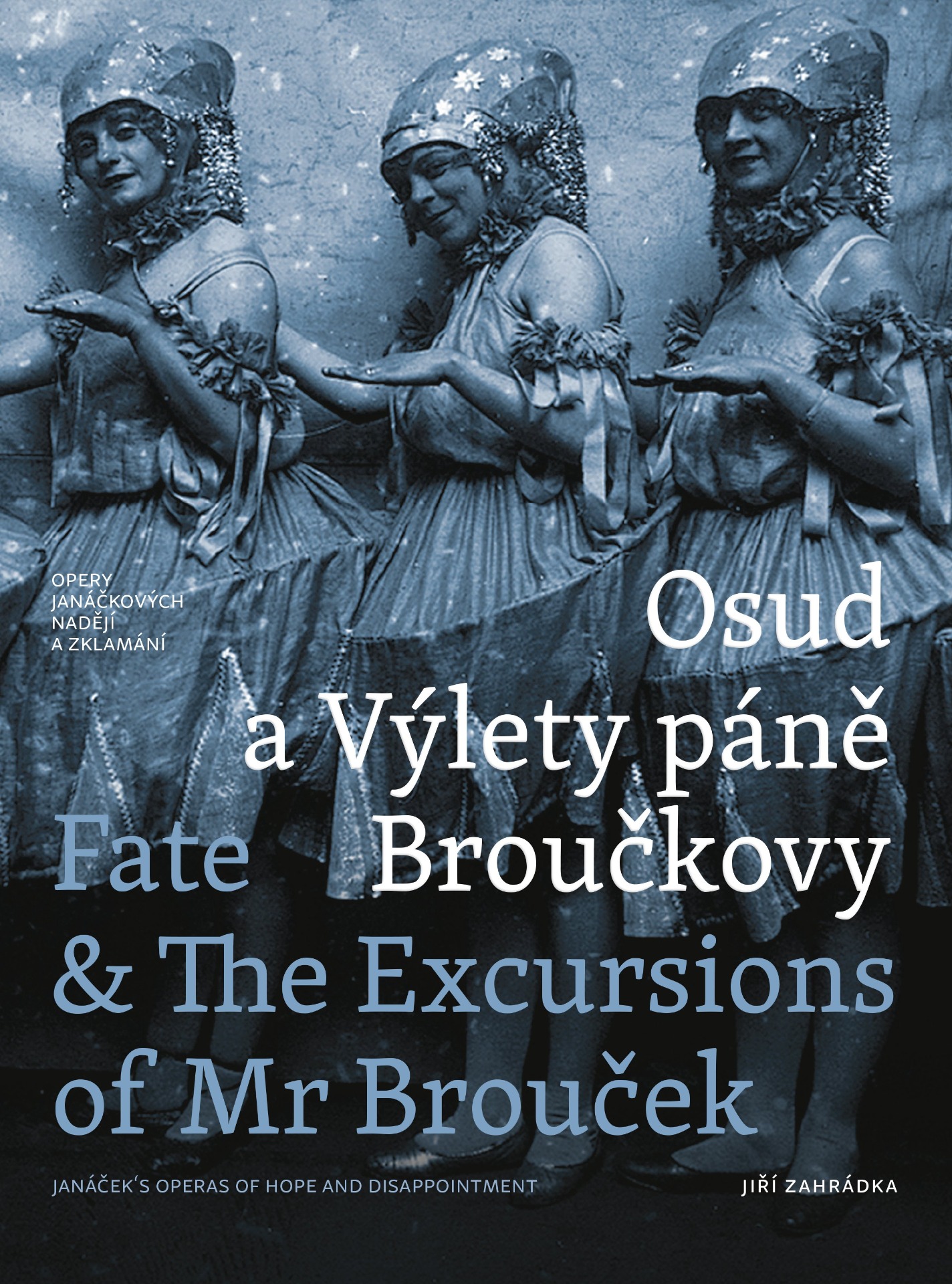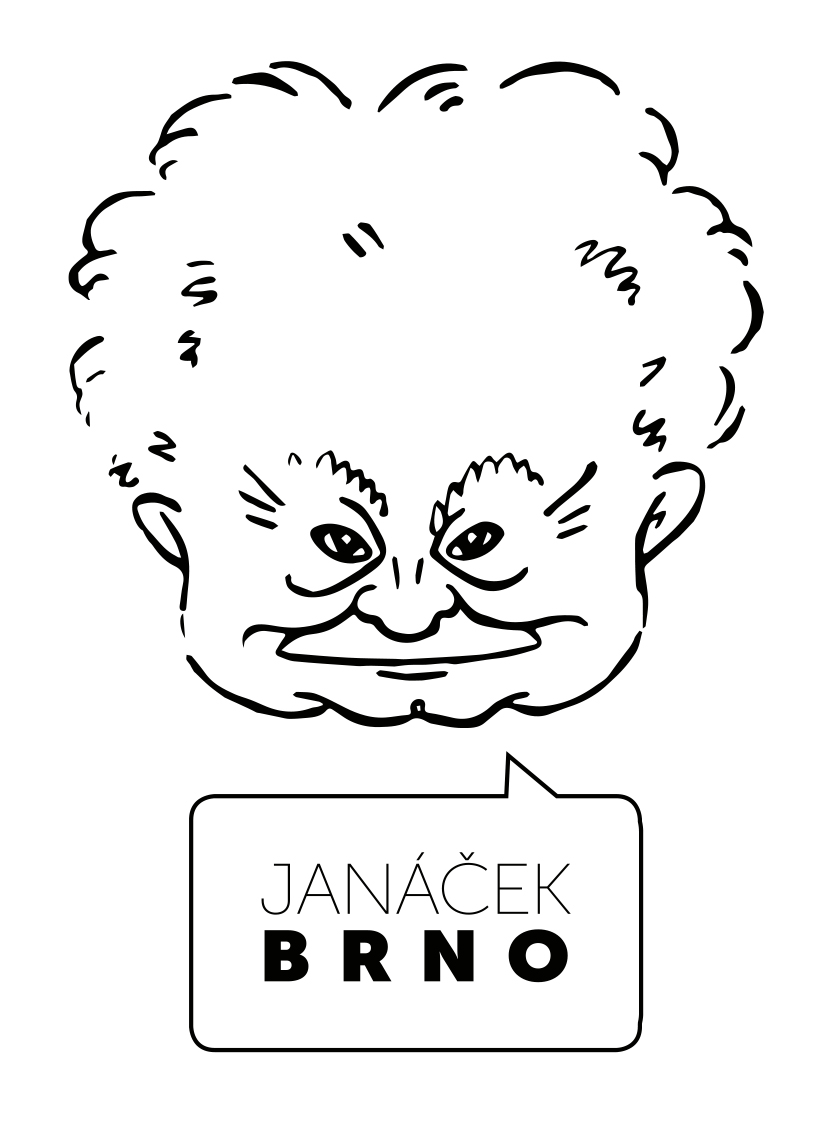
THE EXCURSIONS OF MR BROUČEK JW I/7
opera in two parts 1. The excursion of Mr Brouček to the moon 2. The excursion of Mr Brouček to the XV century
libretto 1. by Leoš Janáček in collaboration with Karel Mašek, František Gellner, Viktor Dyk and F. S. Procházka, 2. F. S. Procházka
1908-18, rev. 1920, 1926
premiere 23. 4. 1920 Prague
first edition Universal Edition, Vienna 1919 (piano-vocal score), 1959? (full score), Universal Edition, Vienna 2003 (piano-vocal score, full score, ed. Jiří Zahrádka, critical edition)
Janáček later added a second part to the opera about Matěj Brouček's dream journey to the moon, where Mr Brouček finds himself amongst the Czech Hussites. This was an attempt at a satirical parody of Czech provincialism, which had been something of a failure in Janáček's first opera. The Brouček opera was Janáček's only opera to be premiered in Prague and not in Brno.
Svatopluk Čech's satirical story about the provincial Czech, Mr Brouček, became the subject of Janáček's next opera, this time a comic opera. He spent a very long time working on it - almost nine years, starting from 1908. The biggest problem was finding a suitable librettist. While working on the libretto he went through a whole host of authors - perhaps no other libretto in opera has had so many people contribute to it. After many years of collaboration with individual librettists, the composer's bitter recognition was that, "Oh, our poets! You can tell them everything - and still it turns out wrong!" After all his trials, Janáček finished The Excursion of Mr Brouček to the Moon in March 1917 and immediately began to expand it with the Excursion of Mr Brouček to the 15th Century. Unlike the several years that it took to write the first opera, the second part only took nine months.
After the successful premiere of Jenůfa on the boards of Prague's National Theatre, Janáček offered Prague's main theatre the opportunity to perform the world premiere of his opera. It was not, however, without problems. The soloists refused to sing the demanding parts and even returned their roles. The premiere took place on 23 April 1920, conducted by Otakar Ostrčil. Although the opera was received cordially, it was criticized for its outdated story, poor-quality libretto and strange orchestration. There were only nine further performances at the National Theatre.
The next production was not until 1926 at the National Theatre in Brno, though this time only the first part - The Excursion of Mr Brouček to the Moon. The production fared much better than the one six years earlier in Prague, mainly thanks to the witty direction of Ota Zítka and the stage design of Josef Čapek.
Opera synopsis
The Excursion of Mr Brouček to the Moon
Act 1
In front of the Vikárka Inn in Prague Castle, the painter Mazal is arguing with Málinka, the daughter of the Sacristan at St Vitus' Cathedral. Mazal's landlord, Mr Matěj Brouček, has overindulged and is staggering home. In order to annoy Mazal, Málinka flirts with Brouček, who in his drunken state even promises to marry her. The conversation is overheard by the Sacristan, but Brouček turns his promise into a joke and says that he'll take Málinka to the moon. He is angry at the whole world and looks enviously up at the full moon, where people must surely be happier. He falls asleep drunk and dreams of the moon.
Brouček wakes up on the moon and looks on with astonishment at the strange landscape and lunar people, who remind him of the people from the Vikárka Inn. On the moon the painter Mazal is the ecstatic poet Hvězdomír Blankytný, who loves the otherworldly Etherea (Málinka). She, however, immediately falls in love with Brouček and despite the protests of her father, Lunobor (Sacristan) and Blankytný, he takes her away on the horse Pegasus to the Temple of the Arts.
Act 2
At the Temple of the Arts, the song of the lunar hymn invites Brouček to a feast. To his horror they only serve the fragrance of flowers, and whilst their foremost poet Oblačný recites his poetry, he nods off in exhaustion and dreams of beer with pork, cabbage and dumplings. Neither does he find the art of the painter Duhoslav inspiring, and when Brouček takes out some smoked meat from his pocket the shocked lunar artists faint. Etherea does not give up and again tries to lure Brouček. The poets awaken, an angry Brouček blows Etherea away and in the general confusion jumps on Pegasus and flies off.
Scene change
The group of artists joyfully leaves the Vikárka Inn, carrying the incapacitated Brouček home in a trunk. Málinka and Mazal make up and sing of their love.
Epilogue
Brouček awakes at noon at home in his bedroom and before he has time to recover from his lunar dream, Málinka and Mazal arrive to persuade the landlord to allow Mazal to stay in the flat. Brouček, who is so shocked by the appearance of Málinka - Etherea, signs the cancellation without protest. Finally he has his work cut out to placate his angry housekeeper.
The Excursion of Mr Brouček to the XV Century
Act 1
The group in the Vikárka Inn are discussing a Medieval underground corridor. Brouček is on his way home when he suddenly finds himself in an underground cellar, from where a secret corridor leads to the royal treasury in the Old Town. As soon as Brouček leaves the treasury, Svatopluk Čech appears and delivers an ode to the glory of the Czech nation's past.
Scene change
Brouček comes out from underground not far from the Old Town Square, but everything looks different than it should. The people are wearing strange clothes, they speak a peculiar Czech and someone tries to persuade Brouček that it is 1420. At first Brouček thinks it is a joke, but he realizes the gravity of the situation when he his singled out as an enemy spy. He would have come to a bad end had it not been for the knight, Domšík of the bell (the Sacristan). The armed people get ready for battle and, singing, make their way to Týn church to pray.
Act 2
In the house of Domšík, Brouček finds it hard to come to terms with the new situation and he would like to secretly disappear, but he has to change into the clothing of the Hussites. Domšík's daughter, Kunka (Málinka), brings in her friends, who are ready for battle, and tells them of the service at Týn church, where even the leader Žižka was in attendance. All of them discuss the military situation and argue about the meaning of war, truth and religion. Petřík (Mazal) then runs in with the news that the battle on Špitál Field had already begun. Everyone rushes to the battle and Brouček, weapon in hand, goes out the door, only to secretly return and quickly change into his original clothes.
Scene change
The victorious Hussite troops return to the Old Town Square to the clamour of the people. Domšík fell in the battle. Brouček tells of his heroism in the battle, but Domšík's friends saw him kneeling before a Crusader knight and accuse him of being a traitor. Brouček is stuffed into a wooden barrel and sentenced to be burned to death.
Scene change
In the courtyard of the Vikárka Inn, the landlord Würfl has a burning torch over the barrel in which Brouček is just awakening from his dream. Brouček is relieved to discover that he is back home and he does not forget to boast to Würfl of how he bravely fought by the side of Žižka and helped liberate Prague.
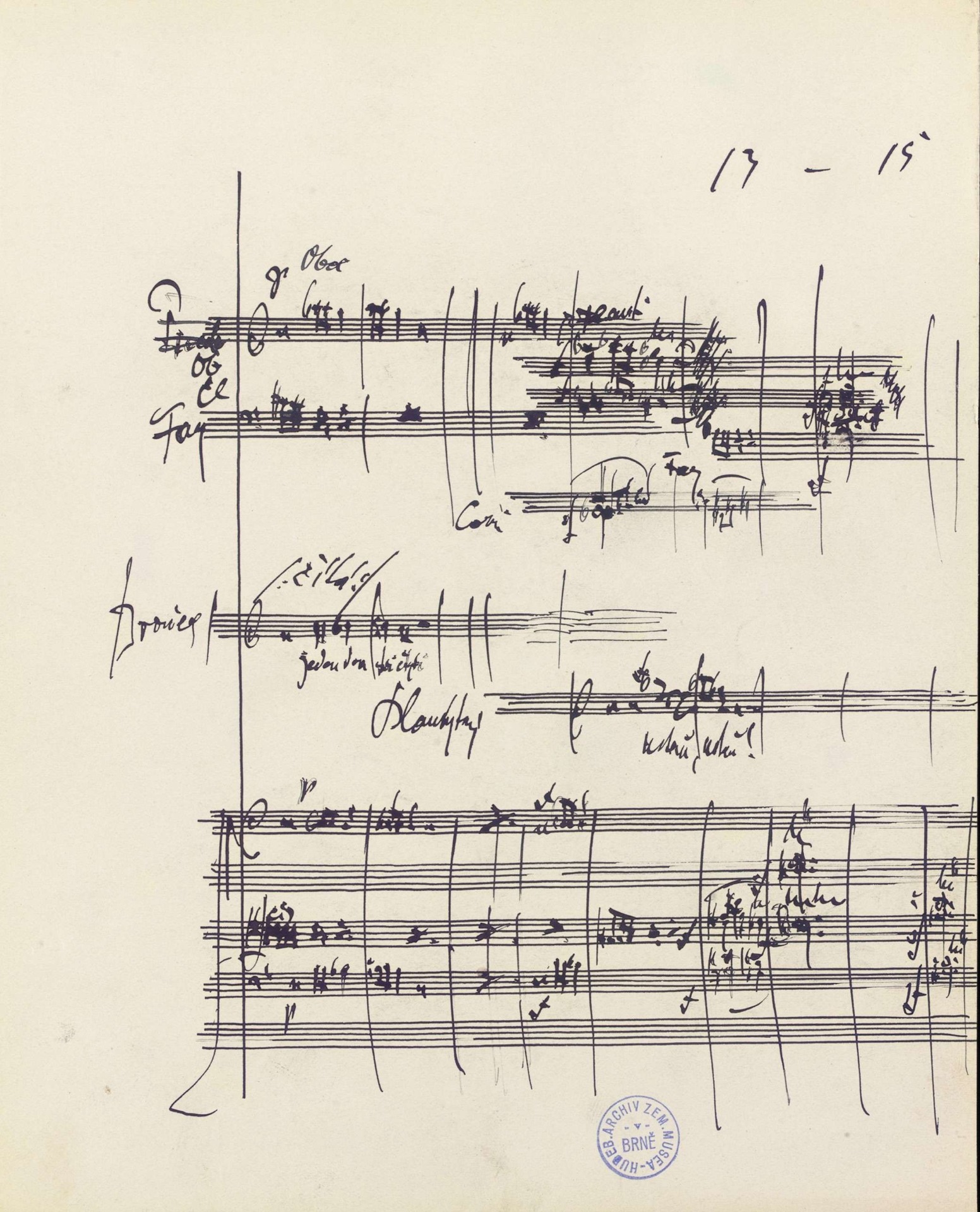
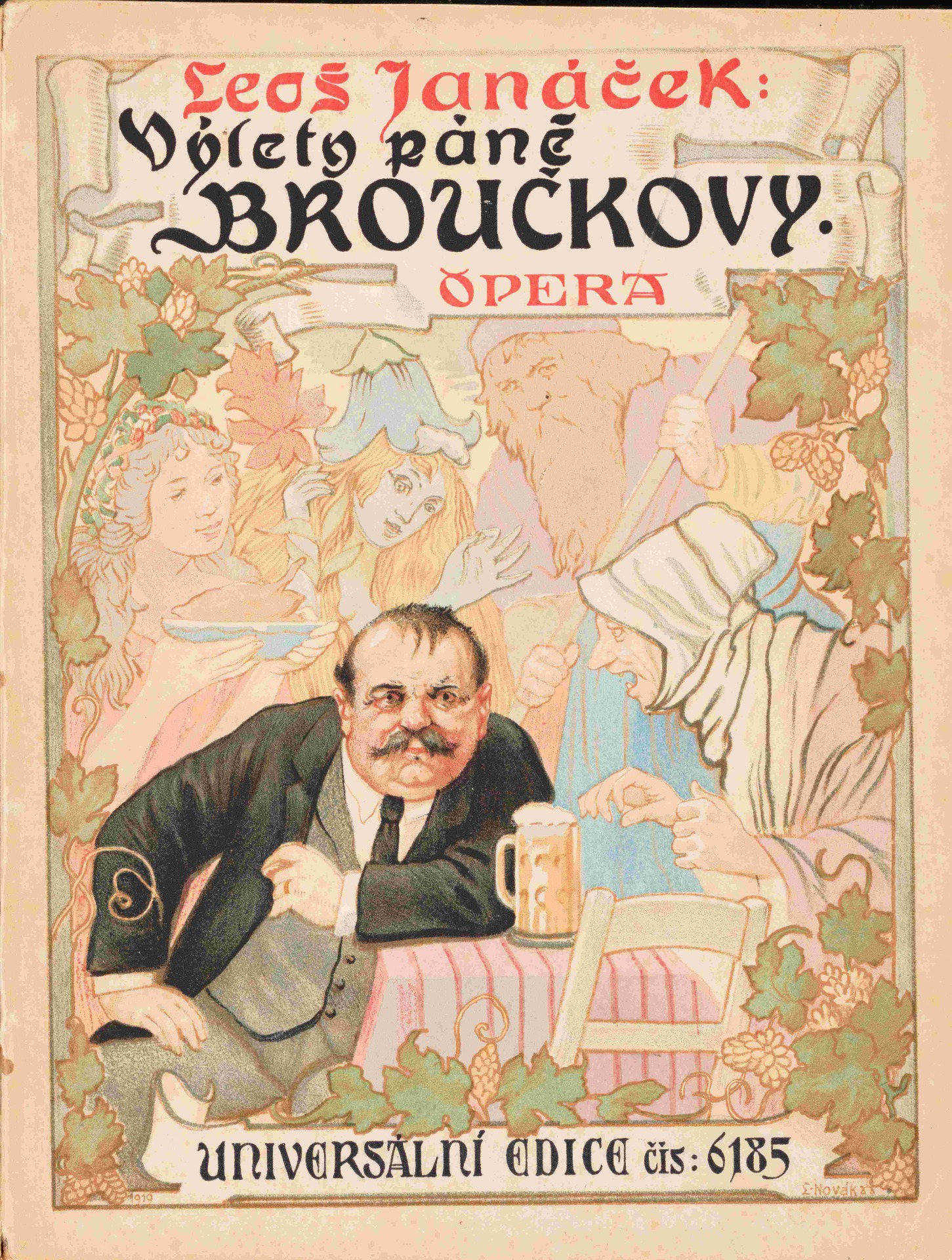
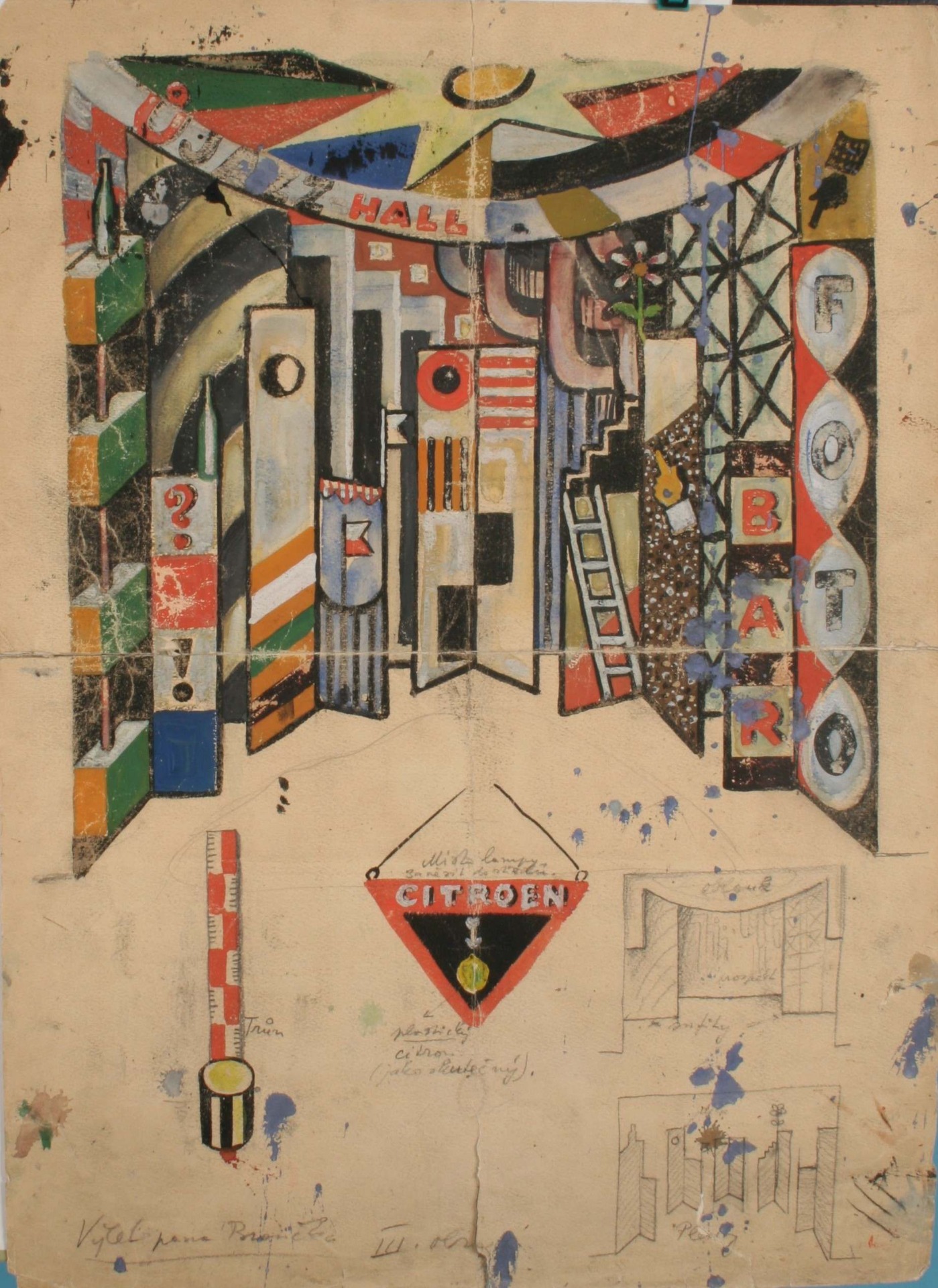
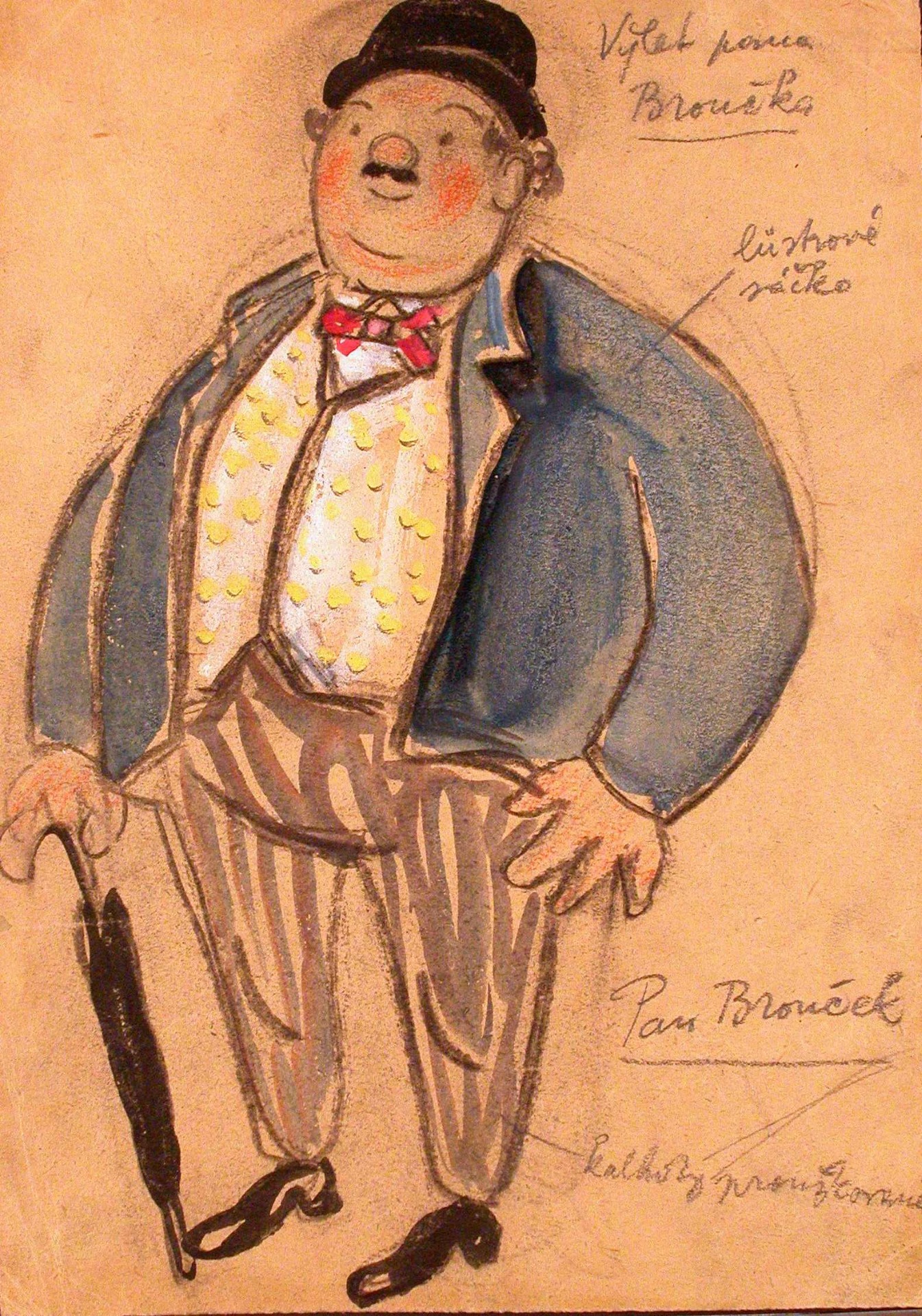
For the operas Fate and The Excursions of Mr Brouček we recommend the book in Czech and English available here.
